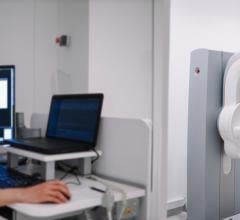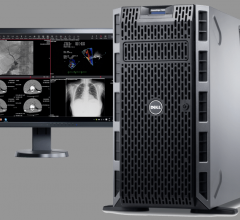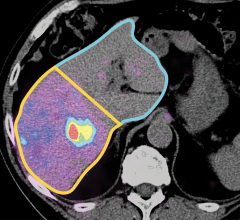
Having been active in the age of transformation which manufacturing, retail, finance, high-tech, oil and gas all experienced in the late 1980s and into the 1990s, I realized that healthcare would have its date with enterprise-wide change. Healthcare as an industry has existed for too long in an environment of stasis. Now with the rapid pace of technology, competition and exorbitant costs, it is evident to the patient, the competition, the government and the rest of the world that it must adapt to survive. Medical imaging is a profit center for most healthcare providers and has historically been the hotbed for technology advancement and innovation.
Unfortunately, for the last decade, the radiology department has relegated itself to a back office position. This was the case for customer service, enterprise resource planning (ERP) and IT prior to each of them reinventing themselves. They are now moving from the back office support/cost center to the focal point of enterprise customer loyalty, tech innovation and organizational growth. Today, many industries invest heavily and showcase these departments (customer service, IT, ERP) to their customers and investors as key differentiators and competitive benchmarks.
The Message
TV and radio are filled with messages from healthcare providers pronouncing the return to personal patient care and the renewed promise of a humanistic experience to patients seeking care. They have the message right, but few have translated it past the marketing department and into a comprehensive patient experience. This will require transformation across the clinical, physical and organizational facets of the care continuum. Given the cost of U.S. healthcare, consumers — often the family of the patient that is assisting in the decision — have high expectations. They expect the lobby of the Ritz, the speed and efficiency of Starbucks and the technical infrastructure of Amazon. Above and beyond these qualities, they expect a focus on care. Consumers are paying for and expecting this level of service, from the second they enter the healthcare facility up to the moment they exit.
Reconnect With Patients
Since so much of the healthcare experience is supported by medical imaging, it will remain the wheelhouse of patient care. Rebuilding your medical imaging organization to prioritize the unique qualities and orchestrate across strategy, technology, process and people will require significant changes. Here are some fundamental next steps:
1. Breaking down the insular nature of today’s healthcare systems means looking at new models — collaborative and quasi-competitive. Accountable care organizations (ACO) and health information exchanges (HIE) may change their focus and funding based on political winds, but they are indicators that the nature of competition and collaboration are changing. Take keen notice that the likes of Wal-Mart, CVS and Walgreens were all present at Healthcare Information and Management Systems Society 2014 (HiMSS14) and each are building their strategy for efficient and effective retail healthcare.
2. Revisit your mission statement and determine if the organization/department is connected to the vision and resolved to its continuous implementation. The physical requirements of healthcare cannot be replaced, but they can be enhanced by technology, continuous education and adaptability to change.
3. Manage the flow of information across the continuum of care. Regardless of big data or small data you will need to be able to manage, track and utilize information both inside and out of your department/enterprise. If you do not have a roadmap for this, you need to develop one, even if it is an iterative approach.
4. ”Agility and connectivity” should be your mantra as you chart your transformation. Technology is not the sole component of any solution but if applied with the right amount of due diligence, organizational change that consists of highly tuned and optimized teams, plus communication, it will allow medical imaging to regain its place as the bellwether department of enterprise healthcare.
Keep Focus and be Flexible
If you are waiting for a new political regime to enter office and return healthcare to its previous existence, you are not being realistic. Once an organization has shifted away from clinical excellence or lost it way then it’s on a downward spiral to skewed objectives and strategic vision.
In a time of rapidly changing environments due to regulations, financials, competition and technology, medical imaging will be a focal point of successful providers. The difference between successful providers and those that struggle will come down to the people who make up the organization and can utilize the resources and create an organization that is informed and flexible.
Hjalmer Danielson is a vice president at Ascendian Healthcare Consulting and a frequent contributor on the subject of health information technology.


 April 22, 2024
April 22, 2024 








